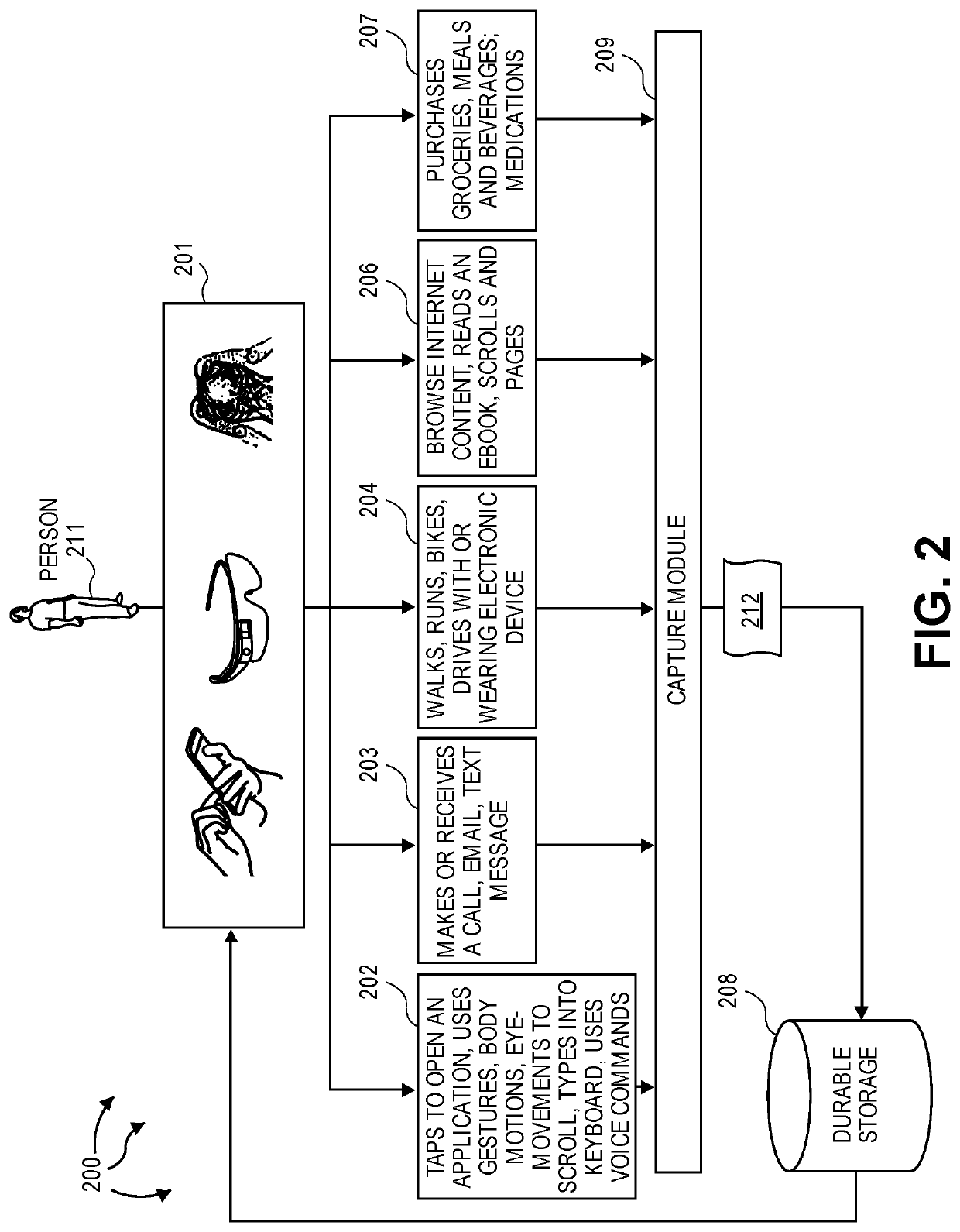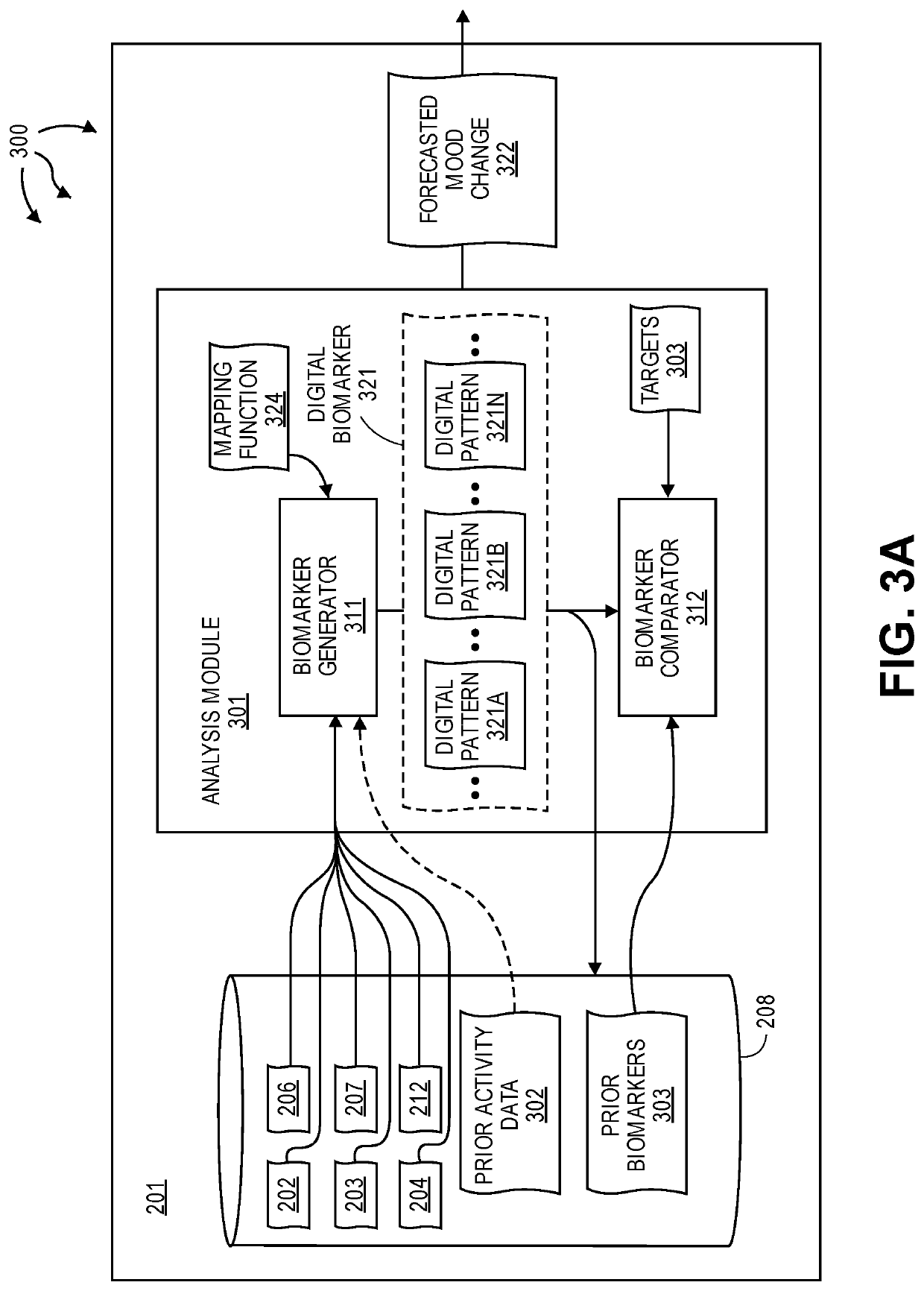Forecasting Mood Changes from Digital Biomarkers
- Summary
- Abstract
- Description
- Claims
- Application Information
AI Technical Summary
Benefits of technology
Problems solved by technology
Method used
Image
Examples
case example
[0112] Patient X
[0113]We consider the following case report of a patient X in her 40s with a history of bipolar disorder and psychosis. Patient X was enrolled in a Health service. Enrollment included downloading an application (app) on her smartphone. The app captures data needed to create a number of digital biomarkers. The biomarkers are computed daily from X's normal use of her smartphone by measuring response times to different patterns of tapping and swiping that she used repeatedly throughout the day. In one aspect, the described patterns and mechanisms can be used to derive digital biomarkers.
[0114]Derived digital biomarkers can be transdiagnostic. That is, the derived digital biomarkers are not specific to any particular diagnosis. Each biomarker measures state-dependent changes in cognition or mood that may be indicative of illness relapse. FIG. 5A illustrates the digital biomarker data available to patient X in a smartphone application over a period of time. Depicted on th...
PUM
 Login to View More
Login to View More Abstract
Description
Claims
Application Information
 Login to View More
Login to View More - R&D
- Intellectual Property
- Life Sciences
- Materials
- Tech Scout
- Unparalleled Data Quality
- Higher Quality Content
- 60% Fewer Hallucinations
Browse by: Latest US Patents, China's latest patents, Technical Efficacy Thesaurus, Application Domain, Technology Topic, Popular Technical Reports.
© 2025 PatSnap. All rights reserved.Legal|Privacy policy|Modern Slavery Act Transparency Statement|Sitemap|About US| Contact US: help@patsnap.com



